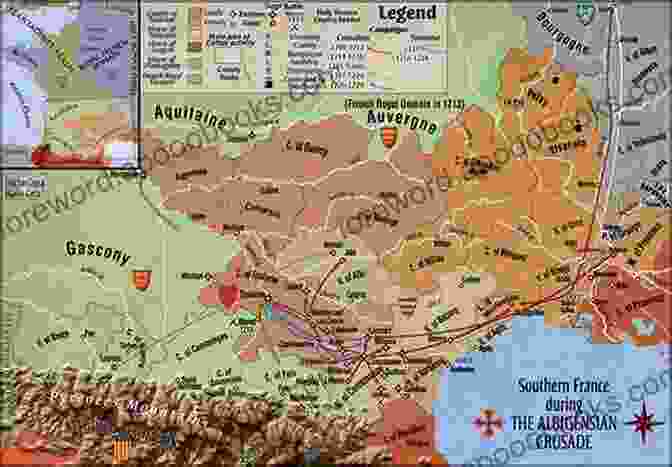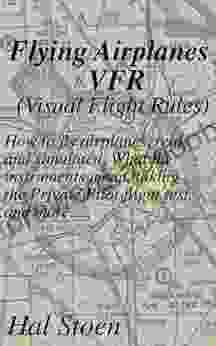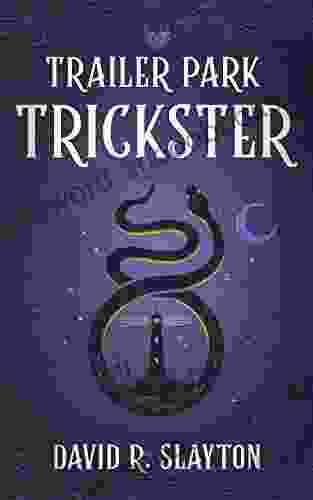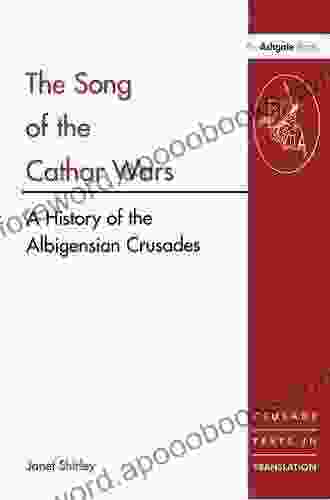History of the Albigensian Crusade: Crusade Texts in Translation

Prelude to Conflict: The Cathar Heresy and Occitan Culture
The Albigensian Crusade, a complex and multifaceted conflict, unfolded against the backdrop of the Cathar heresy and the flourishing Occitan culture in southern France. The Cathars, a dualist sect, held beliefs that challenged the authority of the Catholic Church, sparking a deep-seated religious division within the region.
4.8 out of 5
| Language | : | English |
| File size | : | 3007 KB |
| Text-to-Speech | : | Enabled |
| Screen Reader | : | Supported |
| Enhanced typesetting | : | Enabled |
| Word Wise | : | Enabled |
| Print length | : | 213 pages |
Meanwhile, Occitania, a vibrant and prosperous land, boasted a distinct language, literature, and culture. Its cities were centers of trade and intellectual exchange, fostering a tolerant and open society. The Albigensian Crusade, however, would shatter this harmony, forever altering the fate of Occitania.
Innocent III's Papal Call to Arms
In 1208, Pope Innocent III, driven by a desire to eradicate heresy, issued a papal bull summoning a crusade against the Cathars. His call reverberated across Europe, drawing thousands of knights and foot soldiers eager to fight in the name of faith. The crusade was not only a religious expedition but also a political and territorial power play, as the Church sought to assert its dominance over the rebellious Occitan region.
The Crusade's Unfolding: Violence and Devastation
The Albigensian Crusade unleashed a brutal campaign of violence and devastation. Crusaders rampaged through villages and towns, slaughtering civilians and burning down Cathar strongholds. The siege of Béziers, in particular, became infamous for its indiscriminate massacre, where reportedly 20,000 people were killed.
The Cathars, outnumbered and outmatched, offered fierce resistance, but their efforts were ultimately futile. The crusade's relentless advance and the capture of their key fortresses gradually extinguished their presence in Occitania.
Translated Crusade Texts: Illuminating the Historical Tapestry
To fully understand the complexities of the Albigensian Crusade, it is essential to delve into the original accounts left by its participants. "History of the Albigensian Crusade: Crusade Texts in Translation" presents an invaluable collection of translated texts that shed light on this pivotal conflict from multiple perspectives.
These texts include papal bulls, chronicles, letters, and eyewitness testimonies. They provide firsthand accounts of the events, offering insights into the motivations, strategies, and consequences of the crusade. Through these translated documents, we can hear the voices of the crusaders and their opponents, gaining a deeper understanding of their beliefs, fears, and aspirations.
The Crusade's Legacy: Suppression and Cultural Transformation
The Albigensian Crusade culminated in the suppression of the Cathar heresy and the subjugation of Occitania. The victory of the Church consolidated its authority over the region, but it came at a heavy cost. The crusade left a lasting legacy of violence, mistrust, and cultural suppression.
Occitan culture, once vibrant and diverse, was severely curtailed. The suppression of the Cathar heresy extended beyond religious beliefs, as the crusade also sought to eradicate the region's distinct language, literature, and traditions. Occitania's cultural heritage would take centuries to recover from the devastation wrought by the conflict.
: A Crossroads in Medieval History
The Albigensian Crusade stands as a watershed moment in medieval history, a complex and tragic episode that shaped the religious, political, and cultural landscape of Western Europe. Through the translation and accessibility of firsthand accounts, "History of the Albigensian Crusade: Crusade Texts in Translation" offers an unprecedented opportunity to uncover the intricacies of this conflict and its far-reaching impact.
By engaging with these historical texts, we not only gain a deeper understanding of the past but also provoke critical reflections on the nature of religious intolerance, the dangers of fanaticism, and the enduring importance of cultural diversity.

4.8 out of 5
| Language | : | English |
| File size | : | 3007 KB |
| Text-to-Speech | : | Enabled |
| Screen Reader | : | Supported |
| Enhanced typesetting | : | Enabled |
| Word Wise | : | Enabled |
| Print length | : | 213 pages |
Do you want to contribute by writing guest posts on this blog?
Please contact us and send us a resume of previous articles that you have written.
 Book
Book Novel
Novel Page
Page Chapter
Chapter Text
Text Story
Story Genre
Genre Reader
Reader Library
Library Paperback
Paperback E-book
E-book Magazine
Magazine Newspaper
Newspaper Paragraph
Paragraph Sentence
Sentence Bookmark
Bookmark Shelf
Shelf Glossary
Glossary Bibliography
Bibliography Foreword
Foreword Preface
Preface Synopsis
Synopsis Annotation
Annotation Footnote
Footnote Manuscript
Manuscript Scroll
Scroll Codex
Codex Tome
Tome Bestseller
Bestseller Classics
Classics Library card
Library card Narrative
Narrative Biography
Biography Autobiography
Autobiography Memoir
Memoir Reference
Reference Encyclopedia
Encyclopedia Nick Cohen
Nick Cohen Pamela Hart
Pamela Hart Sheldon S Wolin
Sheldon S Wolin David Feherty
David Feherty Gilles Diederichs
Gilles Diederichs David F Berens
David F Berens Matt Artz
Matt Artz David Damschroder
David Damschroder G P Taylor
G P Taylor David Malouf
David Malouf David J Connor
David J Connor Michael William
Michael William David Norton Stone
David Norton Stone Mark Bergin
Mark Bergin Jeffrey Wickes
Jeffrey Wickes Venus E Evans Winters
Venus E Evans Winters Lorraine Eden
Lorraine Eden Sara Meger
Sara Meger Silvia Federici
Silvia Federici David Dolinak
David Dolinak
Light bulbAdvertise smarter! Our strategic ad space ensures maximum exposure. Reserve your spot today!

 Gabriel Garcia MarquezUnleash the Demonic Rage: Dive into the Inferno of Diesel Satan Fury Mc Book
Gabriel Garcia MarquezUnleash the Demonic Rage: Dive into the Inferno of Diesel Satan Fury Mc Book
 Gage HayesUnlocking Success for Students with Learning Disabilities: The Comprehensive...
Gage HayesUnlocking Success for Students with Learning Disabilities: The Comprehensive...
 Jamie BellUnlock the Secrets of Flight: Exploring the Instruments of Real and Simulated...
Jamie BellUnlock the Secrets of Flight: Exploring the Instruments of Real and Simulated... VoltaireFollow ·7.8k
VoltaireFollow ·7.8k Charles ReedFollow ·9k
Charles ReedFollow ·9k Aldous HuxleyFollow ·3.5k
Aldous HuxleyFollow ·3.5k Julian PowellFollow ·13.1k
Julian PowellFollow ·13.1k Jeff FosterFollow ·16.8k
Jeff FosterFollow ·16.8k Jesse BellFollow ·19.5k
Jesse BellFollow ·19.5k Darrell PowellFollow ·9.5k
Darrell PowellFollow ·9.5k Ernest HemingwayFollow ·19.8k
Ernest HemingwayFollow ·19.8k

 Douglas Powell
Douglas PowellEscape into a World of Sweet Love and Second Chances with...
Prepare yourself...

 Garrett Powell
Garrett PowellMaster Badminton: A Comprehensive Guide to the Thrilling...
Are you ready to step into the world of...

 Deacon Bell
Deacon BellTrailer Park Trickster: The Adam Binder Novels
Book 1: The...

 Oscar Bell
Oscar BellLeo: The Very Modern Taoiseach
Leo Varadkar's journey...
4.8 out of 5
| Language | : | English |
| File size | : | 3007 KB |
| Text-to-Speech | : | Enabled |
| Screen Reader | : | Supported |
| Enhanced typesetting | : | Enabled |
| Word Wise | : | Enabled |
| Print length | : | 213 pages |










